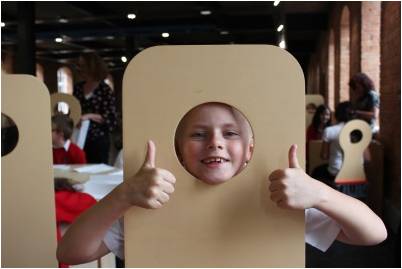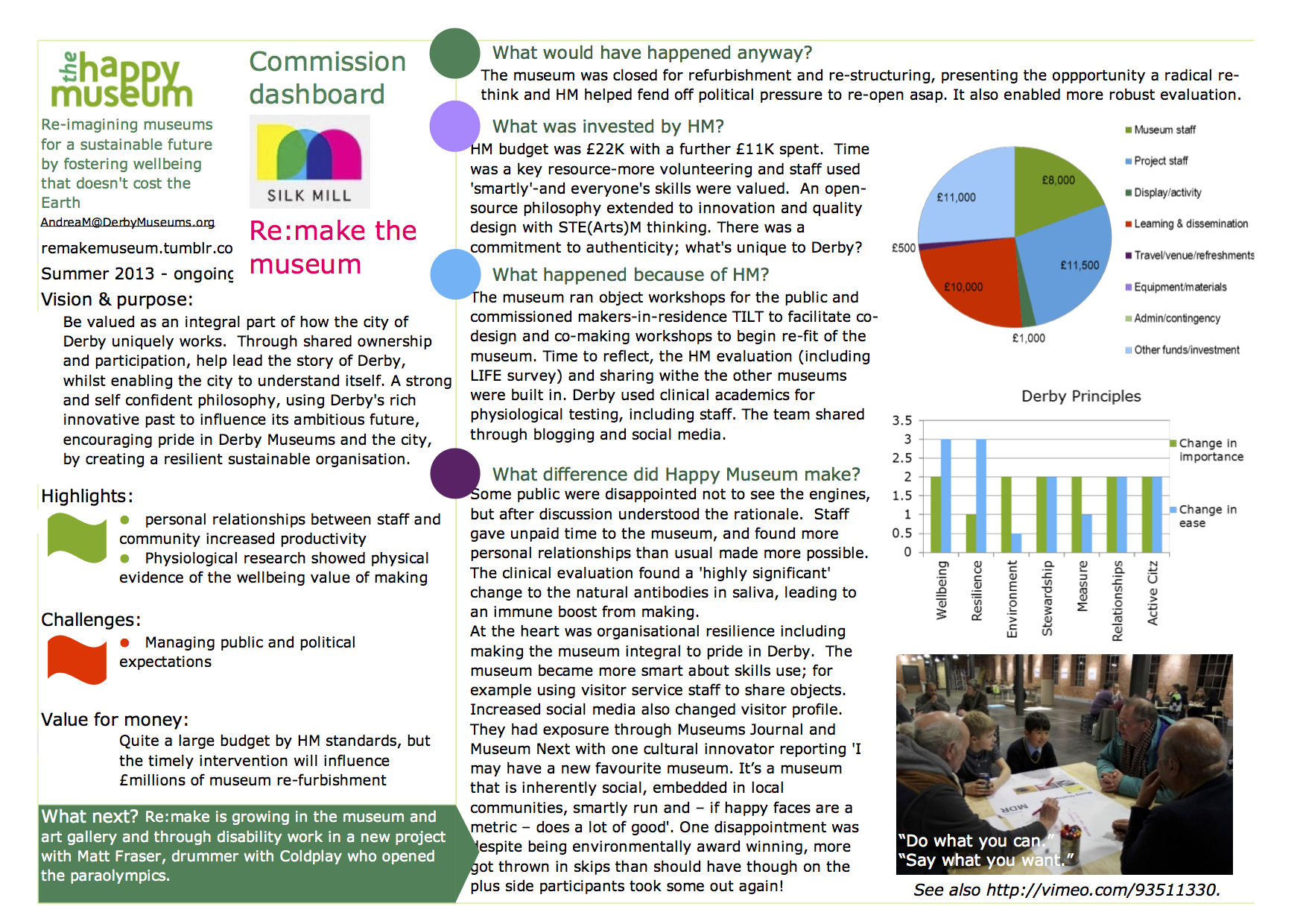Re:make the Museum – Derby

Derby Museums, ‘Re:make the Museum’- 2013- present
‘Re:make the Museum’ at Derby Museums is a ground-breaking approach to developing museums. This project engaged Derby’s communities (including staff, partners and volunteers), in co-designing and ‘fitting-out’ the ground floor of the Silk Mill – a former industrial museum that was mothballed in 2011 as a result of financial pressures and the need for a new approach. Communities become actively engaged in co-producing the Silk Mill as designers and makers – inspiring and empowering citizens to become active co-creators of their cultures and societies. Together they made all of the furniture and the fittings for the “new” Silk Mill.
Through this approach Derby Museums encouraged people into a mindset that says ‘Anything is possible!’ Co-production helped to unlock the maker, creator and innovator in everyone, enabling us all to understand that we can be the key to future happiness and wellbeing – tapping into the success of the American Maker Movement that is already impacting on how U.S. museums are shaping their offer.
Derby Museums continued feed the co-production ethos into the development of their museums with the re-development of the Derby Museum’s Natural History Gallery. The new gallery ‘Notice Nature, Feel Joy’ was developed with hundreds of visitors, volunteers and partners.
Read more about the project in the Case study – participation, making and wellbeing.
Evaluation
The project vision is to be valued as an integral part of how the city of Derby uniquely works. Through shared ownership and participation, Derby Museums helps to lead the story of Derby, whilst enabling the city to understand itself. We promote a strong and self confident philosophy, using Derby’s rich innovative past to influence its ambitious future, encouraging pride in Derby Museums and the city, by being a resilient sustainable organisation.
Highlights of the project included improved personal relationships between staff and community and increased productivity. Research undertaken by the University of Derby showed demonstrated the wellbeing advantages of making.
Challenges included managing public and political expectations.

Extract from the full Happy Museum Evaluation Report 2014

